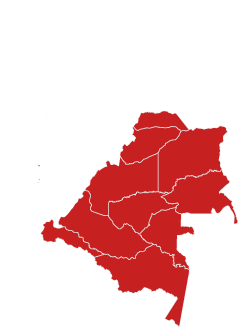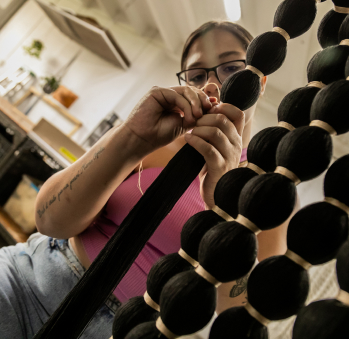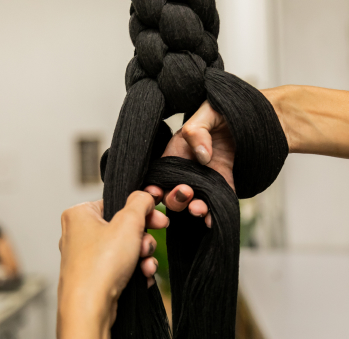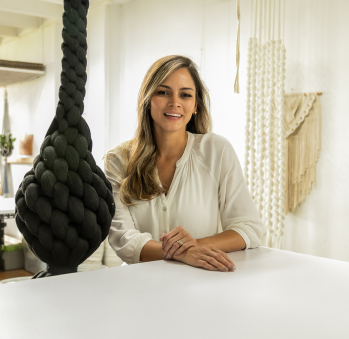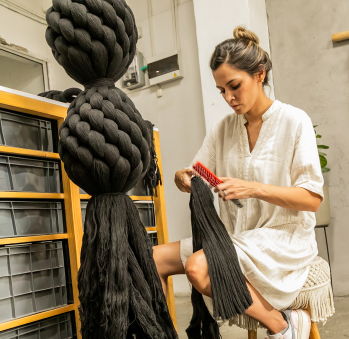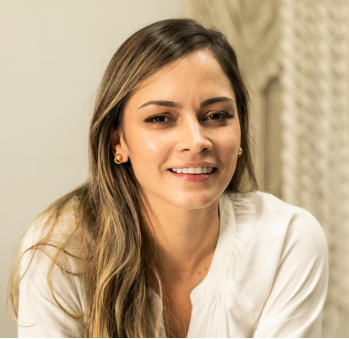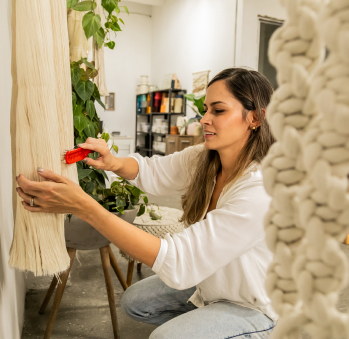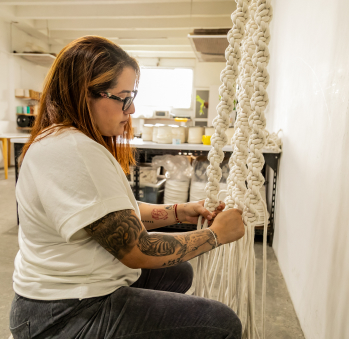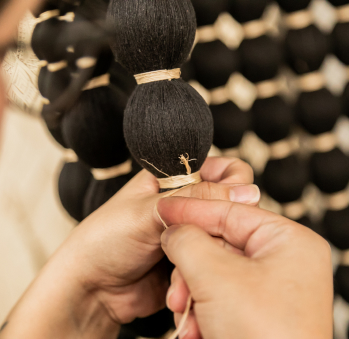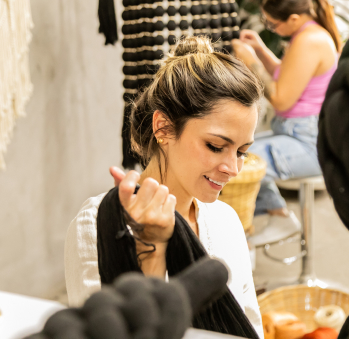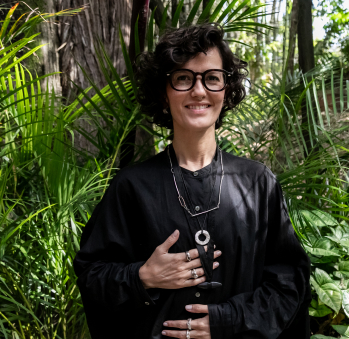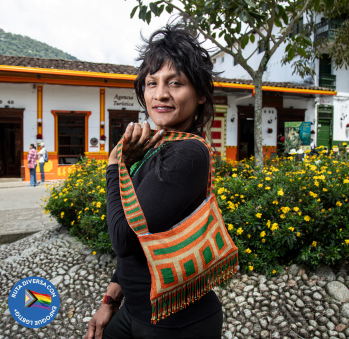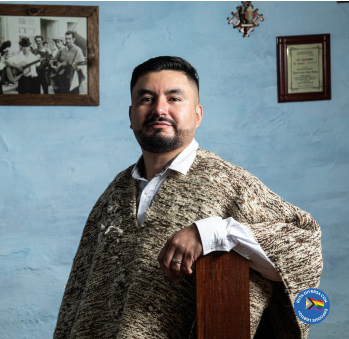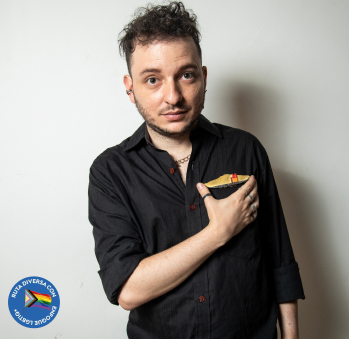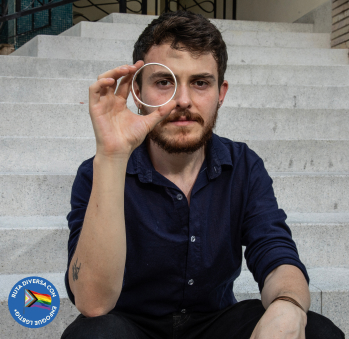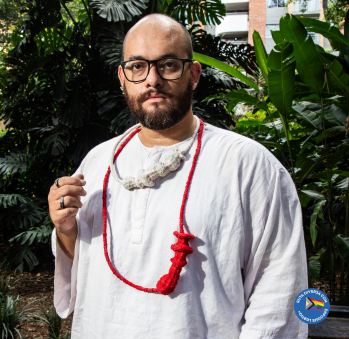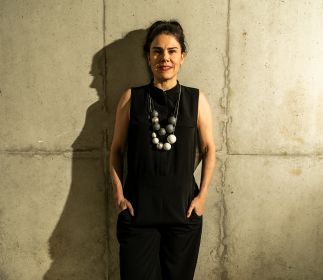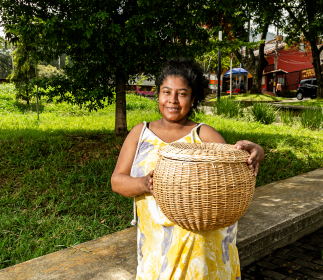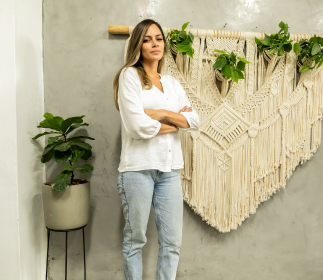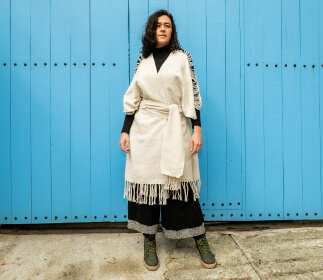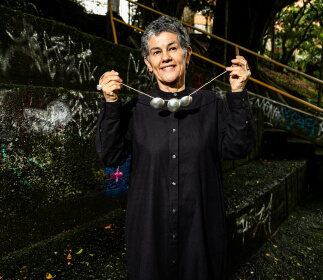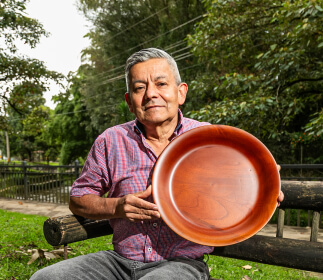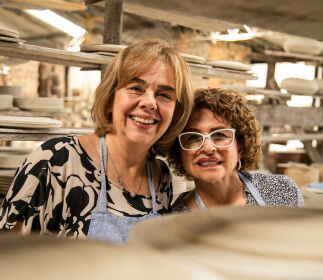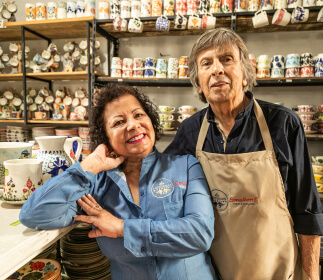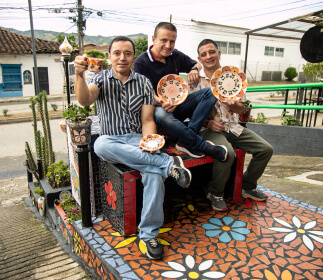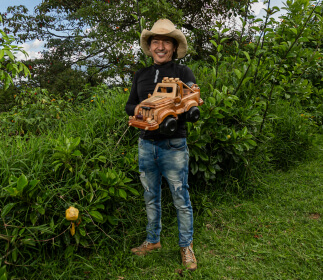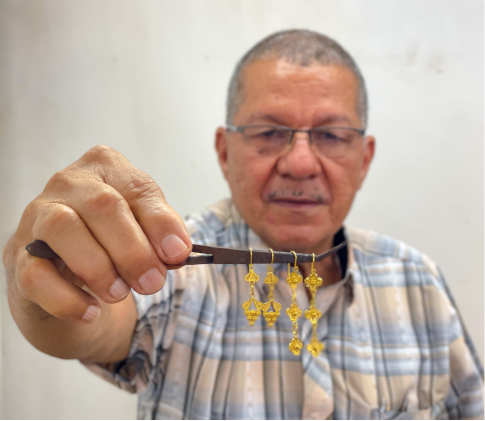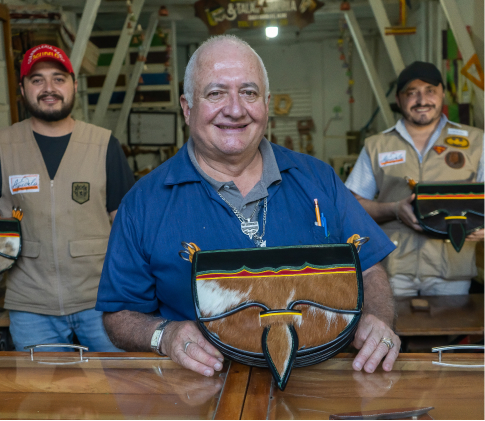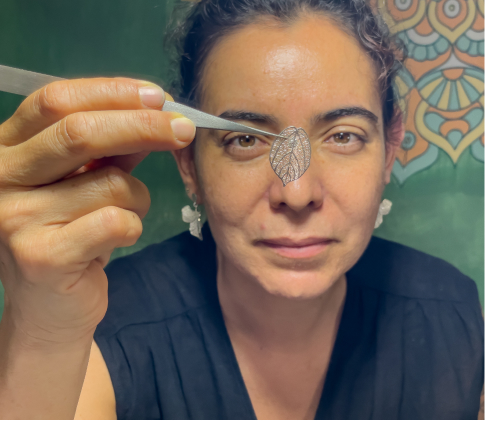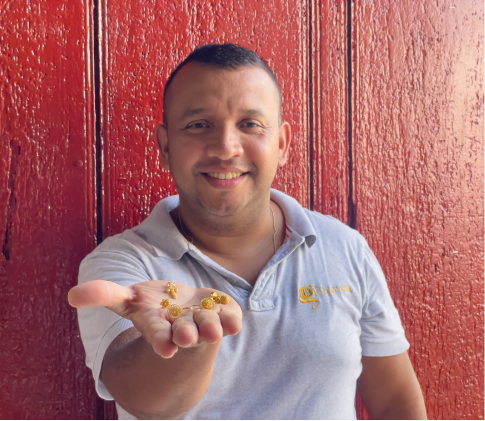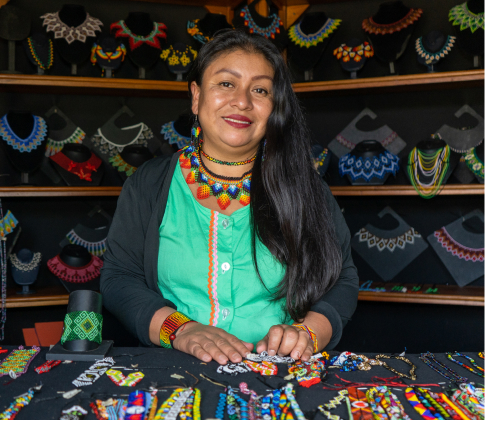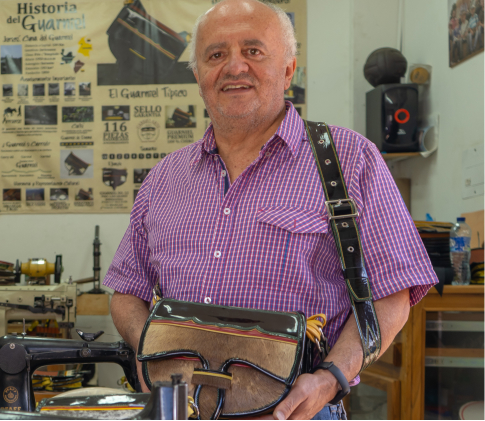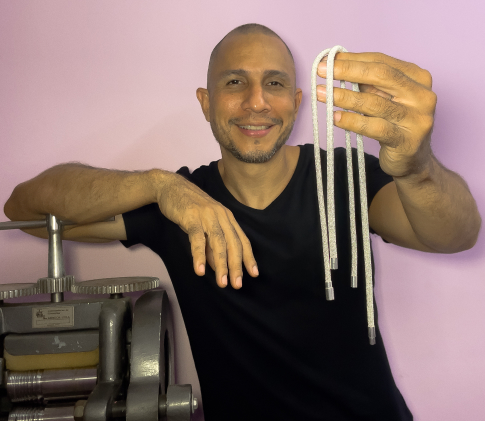Erika Morales Pineda
Workshop: Ancestral
Craft: Weaving
Trail: Antioquia Route
Location: Medellín, Antioquia
SCHEDULE YOUR VISIT
Calle 63 # 80A - 41 Medellín Antioquia
3154240499
hola@ancestral.co
@ancestral.co
Erika Morales found macramé at a difficult time in her life. Or perhaps it’s more accurate to say that macramé found her. On the advice of her therapist, who recommended her to use her hands to distract herself from worrying about her son’s illness, finishing her degree, and the burdens of being a young single mother, she joined a neighborhood group run by a woman named Amparo. There, she learned the basic knots of macramé, and the relief this practice brought her was so profound that she clung to the craft. When she graduated, she told her mother that she didn’t want to pursue a career in product design engineering but wanted to dedicate herself to weaving instead. Her family was shocked, thinking she had lost her mind, and they asked the inevitable question: “What are you going to live on?”
Erika recounts this story with a smile, even though those were tough times. She now knows that, despite her mother’s opposition, it ultimately helped her. Nothing fueled Erika’s drive more than hearing a “no”; it awakened the rebellious spirit within her that always responds, “Yes, it can be done.” She also understands now what learning the technique did for her. It gave her the peace and mental calm she craved. Weaving has its own rhythm and doesn’t live in our world of immediacy. Focusing on it, one knot at a time, brought her back to the present and calmed her. That’s why she couldn’t let it go. Additionally, it confronted her with her own fears and frustrations because, as she says, macramé is harder to undo than to weave. Undoing a knot takes more time than making it and literally brings physical pain to the hands because of the effort. She learned to be patient with herself, to confront her desire to give up in the face of difficulty, and now she sums it all up with a loving joke, saying she is a survivor of macramé.
This is what she teaches her students, who she welcomes at the Ancestral workshop, the brand she created nearly ten years ago and which now even makes her mother proud. She started alone, doing the weaving, sweeping the shop, and handling customer service. Then, more people joined, women who didn’t know how to weave came to learn and become part of her team. Once they mastered the technical aspects, they focused on improving customer service. Today, they create impressive tapestries by order, notable for their size and beauty. They use combed cotton yarn, which they manufacture and sell, and weave in macramé, circular macramé, vertical and circular loom techniques. They have also integrated other ancestral techniques into their weavings, true to their name: low-relief carving from the Sikuani of the Orinoco region, tamo veneer from Pasto, and ceramics from Carmen de Viboral. Balancing teaching, with two courses on the Domestika platform and in-person classes at her workshop, creating pieces, and selling supplies, Erika found equilibrium. Understanding that macramé takes time and confronts each weaver with their inner self, she created a project that suits her, where the focus is not on productivity but on product quality and well-being.
Artisans along the way
Artisans along the way
No puede copiar contenido de esta página

